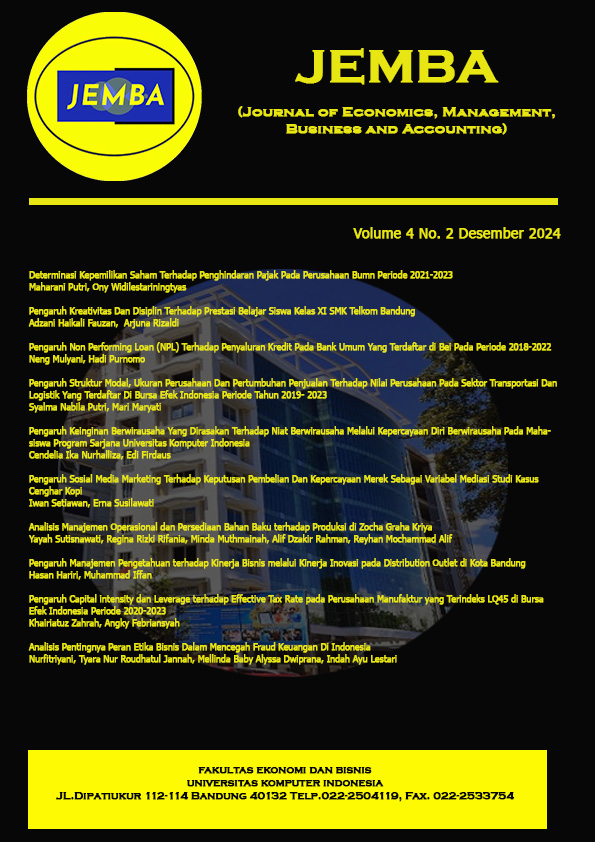Pengaruh Capital intensity dan Leverage terhadap Effective Tax Rate pada Perusahaan Manufaktur yang Terindeks LQ45 di Bursa Efek Indonesia Periode 2020-2023
DOI:
https://doi.org/10.34010/jemba.v4i2.14818Keywords:
Capital intensity, Leverage, Effective Tax Rate, Manufacturing Companies LQ45 and TaxAbstract
There is a gap between the estimated tax revenue and the actual tax revenue received by the state. Various policies can be taken by companies to lower their effective tax rates. Capital intensity and leverage have the potential to lower the company's effective tax rate. This study aims to determine the effect of capital intensity and leverage partially on the effective tax rate. This study uses descriptive and verification methods with a quantitative approach. In this study, there is a population of 60 annual financial reports from 15 manufacturing companies indexed by LQ45 on the Indonesia Stock Exchange for the 2020-2023 period. The sample used in this study was 32 annual financial reports selected using the purposive sampling method. The data analysis method used is the multiple linear regression analysis method, classical assumption testing and hypothesis testing using Statistical Product Service Solutions (SPSS) software version 23. The results of the study show that capital intensity has a positive effect on the effective tax rate. While leverage does not have a significant effect on the effective tax rate.





.png)
.png)

